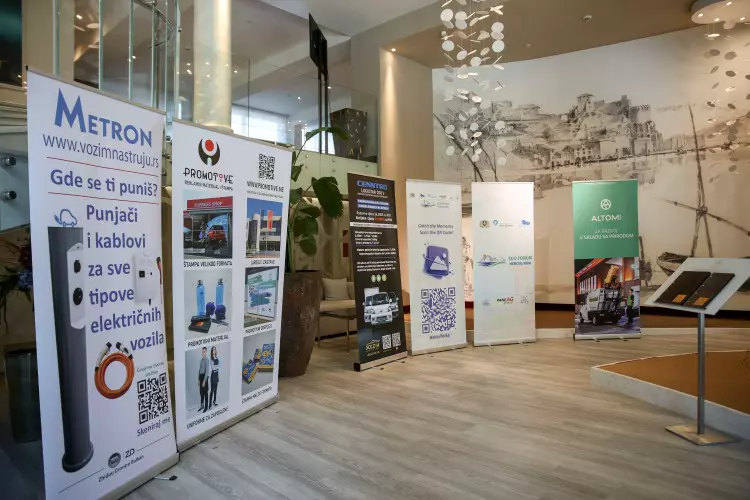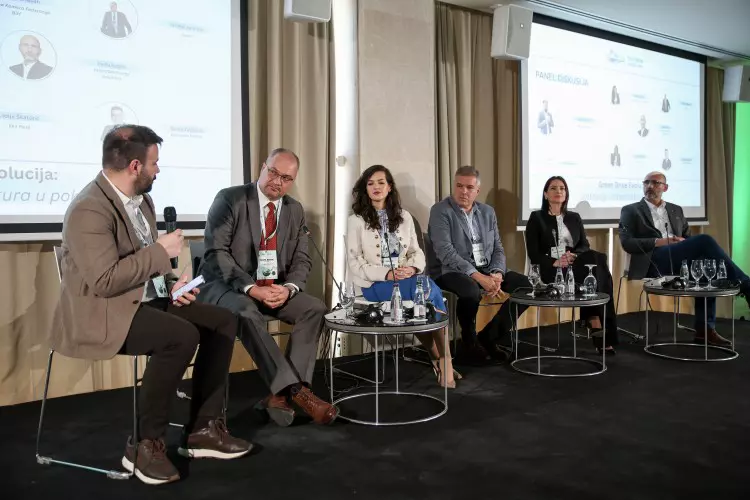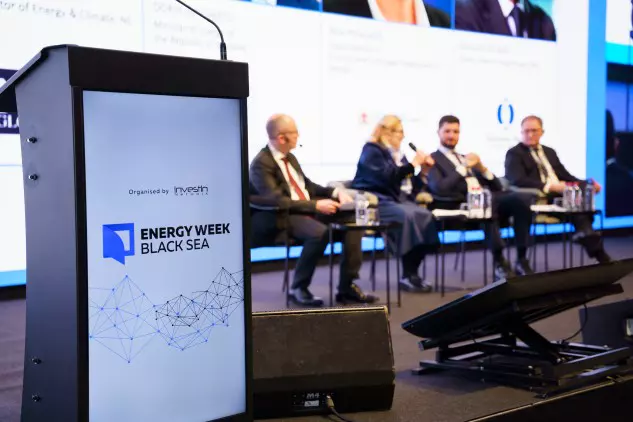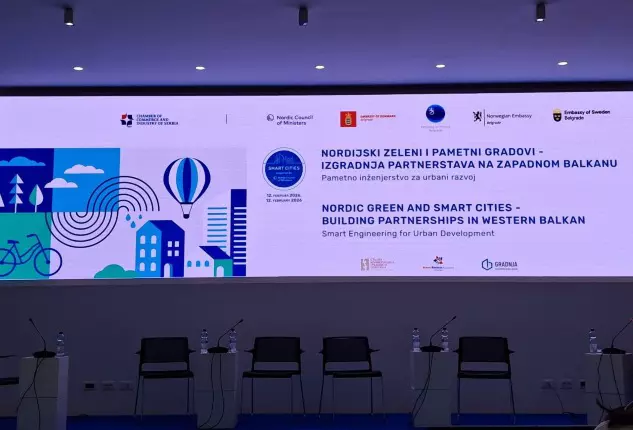From April 9, for three dynamic and idea-packed days, the coastal town of Herceg Novi, Montenegro, turned into a meeting point for innovation, policy, and regional collaboration. Eco Forum 2025, organized by Vozim na struju brought together voices from across the Western Balkans and beyond — ambassadors, ministers, engineers, entrepreneurs, and educators — all focused on the same goal: building a greener, more sustainable future. This year’s forum was made possible through the support of key partners, including the Municipality of Herceg Novi, Parking Servis Herceg Novi, the Tourist Organization of Herceg Novi, and the Eco Fund of Montenegro, with additional backing from the Ministry of Ecology, MERS, and the Environmental Protection Agency of Montenegro, as well as numerous organizations, experts, and companies from across the region.

Not just talk — Eco Forum 2025 with purpose
As extreme weather and urban stressors become more common, the Forum kept its focus tight and urgent: renewable energy, e-mobility, eco-tourism, recycling, and sustainable city planning. With Montenegro’s EU integration closely tied to environmental standards (specifically Cluster 4), these weren’t just hot topics — they were make-or-break issues.
Opening the event, Zorana Đorić, director of the Forum and CEO of Vozim na struju, offered a clear call to action: “Small steps create big change — and everyone has a role to play, from individuals to corporations.”
That message set the tone. One of the most tangible examples came with the launch of a pilot project: starting in June, only electric delivery vehicles will be allowed along Herceg Novi’s seafront promenade. It’s a bold first for the region — and a signal of where things are headed.
Strong regional and diplomatic support
Eco Forum 2025 drew high-level attention. Among the guests were the ambassadors of Brazil and Mexico to Serbia, and representatives from government bodies in Serbia, Montenegro, and Republika Srpska. Their presence underscored one key reality: green transformation doesn’t stop at borders.
Nenad Vitomirović, State Secretary at Montenegro’s Ministry of Ecology, Sustainable Development and the Northern Region, put it simply: “This is not merely about modernizing fleets. It’s about reducing CO₂ emissions and changing our relationship with energy.”

From EV safety to solar power — learning in action
Eco Forum wasn’t just about speeches. Training and education were front and center. Green Drive Academy, part of PaneAG Group, hosted hands-on workshops for emergency responders and insurance experts — covering everything from how to handle electric vehicle (EV) fires to assessing EV damage after accidents.
Sessions like “Electromobility 360°” and “Green Drive EVolution” dug into the practical side of electrification: infrastructure, fleet management, and public policy. One of the most talked-about moments was a live EV battery ignition demo by Andrej Pečjak, director of Slovenia’s Metron Institute and senior mobility advisor to the Slovenian Prime Minister. His key takeaway? EV battery fires are rare — and almost always preventable.
Miloš Kostić, Director of MT-KOMEX, shared a glimpse of what’s next: “With solar panels, EV charging can be nearly free. Vehicle batteries themselves can help stabilize home energy use, especially for solar-powered households.”

A region heating up — fast
It wasn’t all optimism. Panels on climate trends reminded participants of the urgent stakes. Meteorologist Slobodan Sovilj reported that the Western Balkans are warming at twicethe global average. Flash floods, heatwaves, and extreme storms are no longer distant threats — they’re shaping daily life, economies, and public health across the region.
Representatives from the Serbian Chamber of Commerce and the Circular Economy Center pointed to the need for better regulation, investment, and innovation to push the green transition forward — and fast.
From words to momentum
As the Eco Forum 2025 wrapped up, Zorana Đorić left participants with a final reminder: “We are on the right path — but it will take continued education, cooperation, and bold action to build a sustainable and ecologically conscious future.”
The applause faded, but the energy remained. People left not just with ideas, but with new connections and concrete steps to take. If the Western Balkans are to move forward on climate — it won’t be through grand gestures, but through small, smart steps. Taken together.

Read more about green and smart events here and here.


